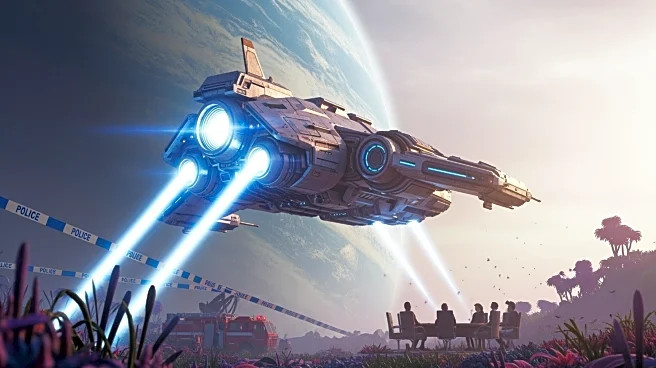What's Happening?
Arc Raiders, a PvPvE game developed by Embark Studios, has sold 2.5 million copies within its first week, generating over $100 million in revenue. The game is particularly successful on Steam, accounting
for 69.2% of total sales, followed by PlayStation and Xbox. Arc Raiders, originally intended to be free-to-play, opted for a paid model, which may contribute to its commercial success. The game is currently the No. 1 best-selling title on Steam and ranks among the top five most-played games on the platform, with over 300,000 concurrent players.
Why It's Important?
The commercial success of Arc Raiders highlights the viability of paid models for games traditionally considered niche, such as extraction shooters. This could influence future game development strategies, encouraging studios to reconsider free-to-play models in favor of paid approaches that may offer better long-term player retention. The game's strong performance on Steam underscores the platform's significance in the gaming industry, potentially driving more developers to prioritize PC releases. Arc Raiders' success also reflects the growing popularity of community-driven storytelling in games, which may shape future game narratives and player engagement strategies.
What's Next?
Embark Studios may continue to capitalize on Arc Raiders' success by releasing additional content and updates to maintain player interest and engagement. The game's performance could lead to expansions or sequels, further solidifying its presence in the gaming market. Other developers might take note of Arc Raiders' achievements and explore similar paid models for their games, potentially leading to a shift in industry standards regarding game monetization.
Beyond the Headlines
Arc Raiders' success raises questions about the sustainability of paid models in an industry dominated by free-to-play games. While the paid approach may offer advantages in terms of player retention, it also requires developers to deliver high-quality content that justifies the cost. The game's community-driven storytelling could influence cultural perceptions of gaming, as players become more involved in shaping narratives, potentially leading to more collaborative and immersive gaming experiences.









